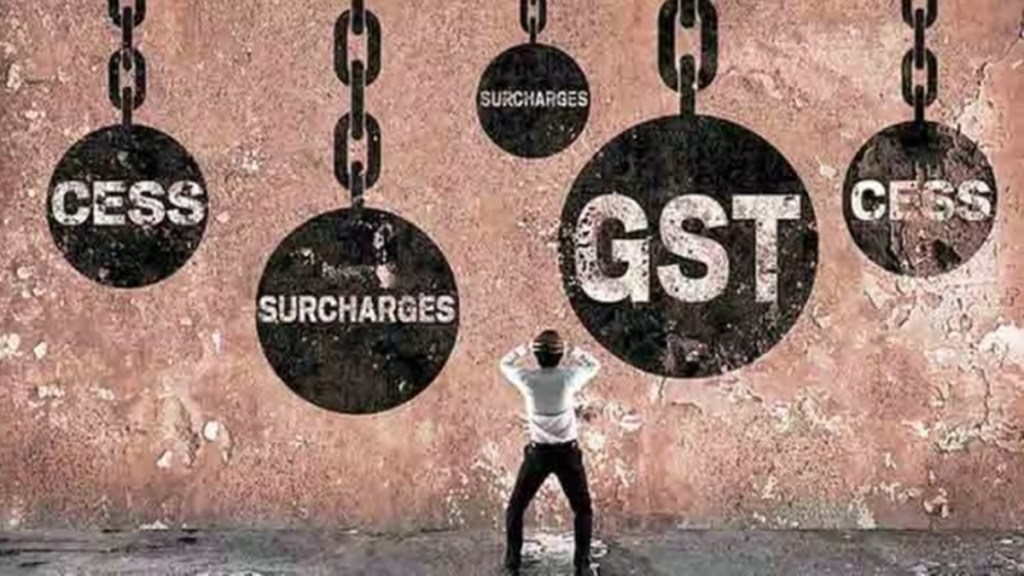By Raghavendra Pal Singh
The GST Council held its 51st meeting on August 2, 2023. As per Article 279A of the amended Constitution, the GSTC is a joint forum of the Centre and the states with the Union finance minister as its chairperson and the finance ministers of all states and representatives from Union Territories as its members.
Since the beginning, the Council has been instrumental in deciding key issues such as classification, tax rates, exemptions, thresholds, and administrative procedures. Per the prescribed procedure, every decision of the GSTC shall be taken by a majority of no less than three-fourths of the weighted votes of the members present. A weightage of a third of the total votes cast is given to the Centre and two-thirds to the states.
The GSTC is mandated to meet atleast once in every quarter of the financial year. Clearly, it has outperformed by sitting more than the mandated times to meet the challenges of GST implementation. A small and compact formation named GST Policy Wing is supporting GSTC with policy inputs. The data shown in the infographic on the number of various notifications, circulars, and instructions issued on GST speaks of the work done by GSTC.
The GSTC has taken several important decisions. Examples include the introduction of the e-way bill and the integration of the e-invoicing system with return filing. The QRMP scheme was established for small-scale businesses. GST returns were simplified and auto-populated, making compliance easier for taxpayers. Dynamic QR codes were put on invoices to facilitate digital payment. Rates were rationalised for 226 items under 28% GST slab, and this was reduced to 37 items. The GST Tribunal was set up, transferring work from National Anti-Profiteering Authority (NAA) to the Competition Commission of India (CCI), and more.
The GSTC also formed around 19 groups of ministers (GoMs) to deliberate on important matters ranging from formation of GST appellate tribunals, online gaming, capacity-based taxation, and more. Many of these GoMs have submitted their recommendations resulting in to consequent amendments in laws and the issuance of notifications, circulars, or instructions. Besides, the GSTC has also processed the urgent requirement of state-specific requests such as the extension of dates to file returns in Manipur, Gujarat, and Odisha at different times due to prevailing situations.
The success of GST in the form of increasing revenue collection, enhanced taxpayers’ base, and greater transparency indicates the efficiency of GST implementation under the supervision of GSTC. In the beginning, there were apprehensions about how GSTC, being a political body, would meet frequently to fulfill the dynamic requirement of tax administration, but it has shown the best illustration of India’s federal spirit.
The latest GSTC meeting in New Delhi was remarkable on many fronts as it not only dealt with pending issues on ISD cross charge, capacity-based taxation, and more, but also nailed the most contentious issue of taxing online gaming. The GSTC has discussed in detail about the recommendations of the GoM and the pros and cons of changing the methodology of the tax. A thin line was created between the games of skill and chance which led to the confusion on correct classification and taxability. Finally, as a consensus decision, GSTC decided to have 28% tax on face/ bet value. The relevant changes in the GST Act and valuation issues are under deliberation and hopefully will be brought in the current monsoon session of the Parliament. The issues of fake invoicing, tackling GST registration on forged documents, further enhancement of taxpayers’ base, use of AI and machine learning for targeted intervention, and more are some of the many challenges for the GSTC in the times ahead.
India has set the ambitious target of becoming a $5 trillion economy. GST plays a very significant role by being an agent of change, making the life of taxpayers easy and promoting the ease of doing business. In this journey, the GSTC will continue to play an active role in meeting the emerging challenges of complex taxation matters.
The writer is Director/additional commissioner, GST policy wing, ministry of finance
Views are personal

